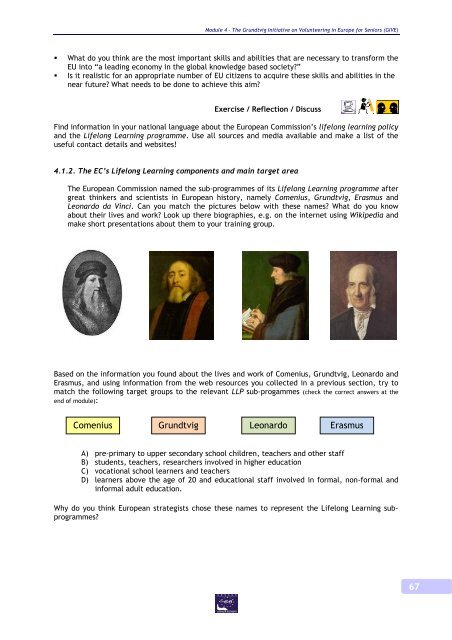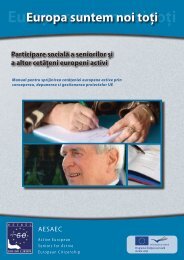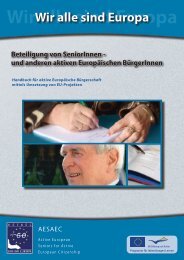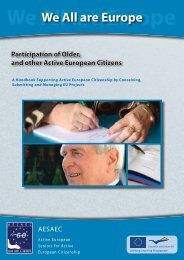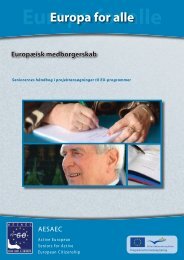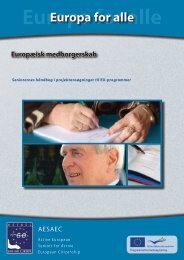We All are Europe - AESAEC
We All are Europe - AESAEC
We All are Europe - AESAEC
Create successful ePaper yourself
Turn your PDF publications into a flip-book with our unique Google optimized e-Paper software.
Module 4 – The Grundtvig Initiative on Volunteering in <strong>Europe</strong> for Seniors (GIVE)<br />
<br />
<br />
What do you think <strong>are</strong> the most important skills and abilities that <strong>are</strong> necessary to transform the<br />
EU into “a leading economy in the global knowledge based society”<br />
Is it realistic for an appropriate number of EU citizens to acquire these skills and abilities in the<br />
near future What needs to be done to achieve this aim<br />
Exercise / Reflection / Discuss<br />
Find information in your national language about the <strong>Europe</strong>an Commission’s lifelong learning policy<br />
and the Lifelong Learning programme. Use all sources and media available and make a list of the<br />
useful contact details and websites!<br />
4.1.2. The EC’s Lifelong Learning components and main target <strong>are</strong>a<br />
The <strong>Europe</strong>an Commission named the sub-programmes of its Lifelong Learning programme after<br />
great thinkers and scientists in <strong>Europe</strong>an history, namely Comenius, Grundtvig, Erasmus and<br />
Leonardo da Vinci. Can you match the pictures below with these names What do you know<br />
about their lives and work Look up there biographies, e.g. on the internet using Wikipedia and<br />
make short presentations about them to your training group.<br />
Based on the information you found about the lives and work of Comenius, Grundtvig, Leonardo and<br />
Erasmus, and using information from the web resources you collected in a previous section, try to<br />
match the following target groups to the relevant LLP sub-progammes (check the correct answers at the<br />
end of module):<br />
Comenius Grundtvig Leonardo Erasmus<br />
A) pre-primary to upper secondary school children, teachers and other staff<br />
B) students, teachers, researchers involved in higher education<br />
C) vocational school learners and teachers<br />
D) learners above the age of 20 and educational staff involved in formal, non-formal and<br />
informal adult education.<br />
Why do you think <strong>Europe</strong>an strategists chose these names to represent the Lifelong Learning subprogrammes<br />
67


